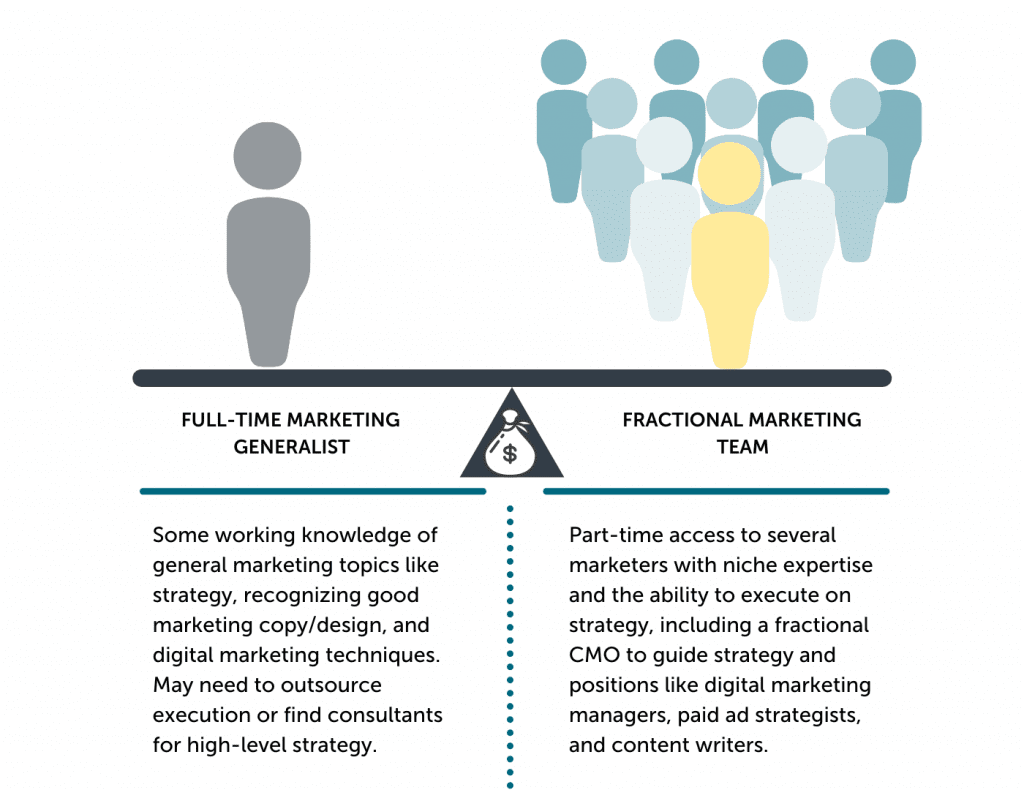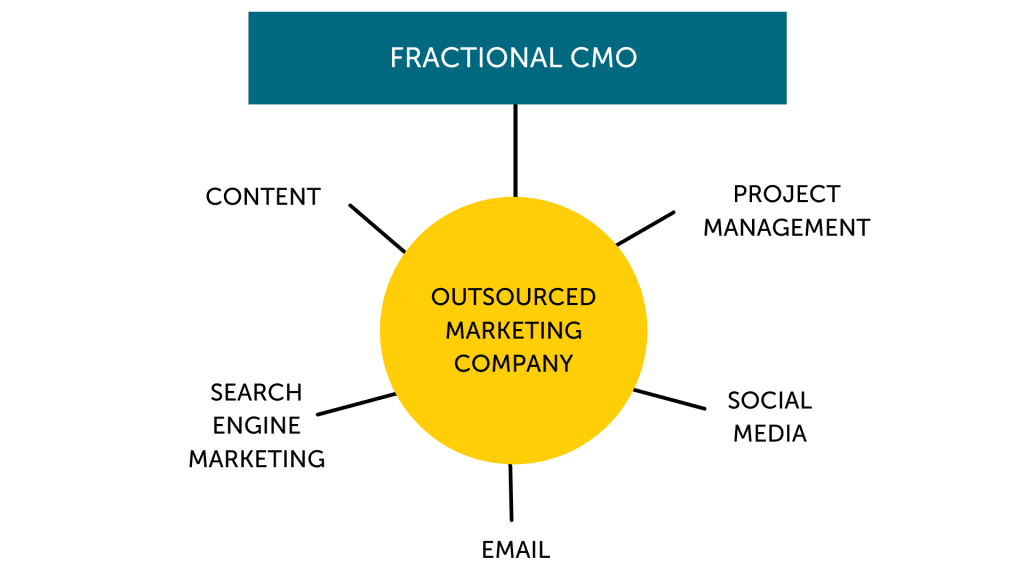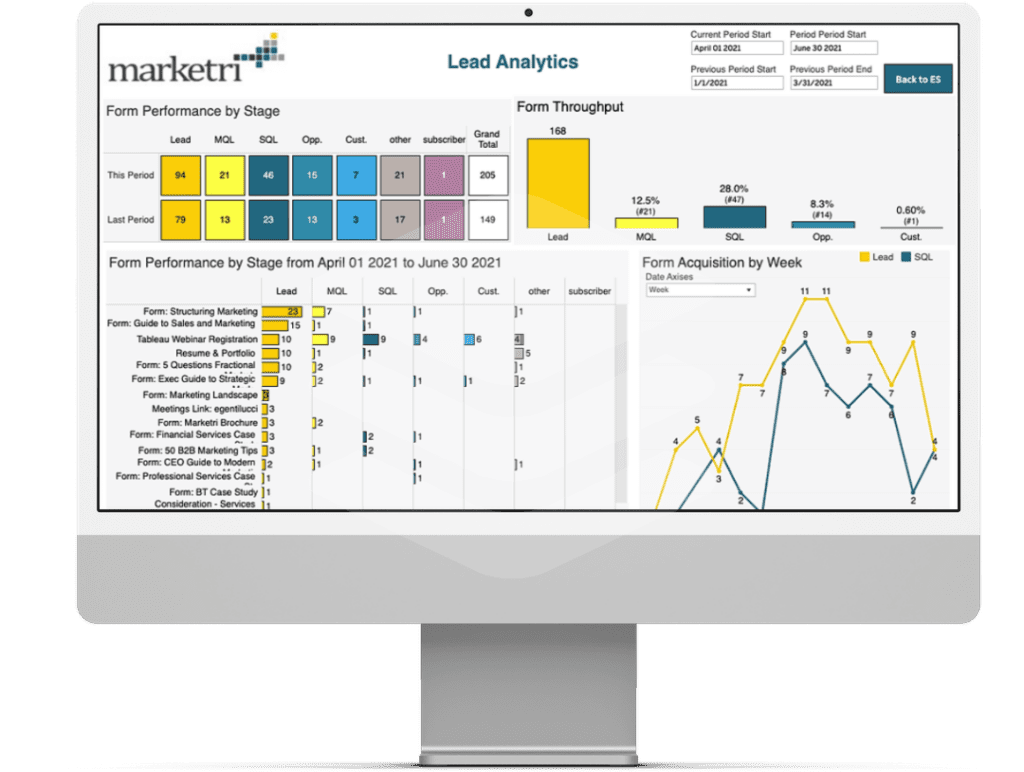What Is Fractional Marketing?
In the age of digital transformation, all the rules of marketing have changed. Just a few years ago, most organizations could successfully market their products and services via small, in-house teams managed by experienced marketing generalists.
But today, the marketplace has just become too complicated for a single marketing generalist or even a small team of professionals – no matter how talented or experienced – to be all things to all people.
To keep pace with changes in the consumer landscape, the world’s most disruptive brands are embracing an innovative outsourcing model for their marketing programs. Termed fractional marketing, this more flexible framework for marketing allows brands to apply just the right resources at the right time, place, and channel to engage target audiences and deepen brand affinity.

Here’s why more and more marketing departments are making the switch.
A Shifting Digital Landscape
Marketing is constantly evolving across an array of digital, mobile, and social channels that facilitate consumer touchpoints, conversations, and transactions.
RELATED POST: Looking to the Future of B2B Social Media Marketing
To effectively reach and engage today’s digital-first consumers – and deliver the kind of personalized experiences they have come to expect from top brands – organizations must modernize their approach to marketing, deploying timely, data-driven strategies and campaigns built on the latest apps and platforms Big Tech has to offer.
While technology plays an increasing role in the marketing mix today, marketing remains both an art and a science. Effectively attracting and building affinity with key audiences still requires marketing content to speak to an individual consumer’s values and preferences wherever that consumer’s attention happens to be focused.
Yet, meeting potential buyers and other key stakeholders where they are often takes more resources than most small and mid-size companies can effectively support in-house. That’s where fractional marketing comes in.
Building an Adaptive Team
An adaptive marketing strategy that can effectively reach people where they are – both digitally and within their buyers’ journey – requires an adaptive team. Large companies rely on teams of marketing specialists to achieve specific goals, such as:
- A chief marketing officer (CMO) to develop your marketing plan and maintain the ongoing marketing strategy.
- A marketing project manager to determine and deploy the right resources at the right time and keep the overall marketing program on track.
- Digital strategists to oversee campaigns.
- Paid media specialists to develop and maintain paid channels like search, display ads, and social media.
- An SEO strategist to develop organic keyword strategy.
- A content strategist who can plan the direction for your written and visual content and determine the proper channel to deploy each piece.
- Content writers for companies with ambitious content plans.
- Public relations specialists to maintain relationships with the media and write pieces designed to attract the right media attention.
- A graphic designer to build beautiful campaign pieces and/or a creative director to oversee them.
- An analytics expert to track the proper metrics and propose changes to strategy as needed.
- Marketing coordinators, specialists, and/or analysts to make sure all the details are attended to.
For those larger companies, it often makes sense to have these resources in-house – since there’s always a new campaign coming around the corner. But for smaller companies, keeping these resources in house does not make good financial sense.
RELATED: Marketing Department Structure Consulting
Fractional marketing, on the other hand, allows middle-market companies to put the right person on the job and constantly flex resources to fit the needs (and budget) of your marketing program.
A Discipline of Specialties
Simply put, fractional marketing is a discipline of specialties that helps brands nimbly, effectively, and cost efficiently respond to shifting market dynamics. In outsourcing through a fractional marketing model, brands can tap just a slice of each specialist’s time – all the support they need to execute well on a particular initiative, at a fraction of the cost involved in maintaining a fully-staffed marketing department. Because fractional marketing specialists practice their chosen craft day in and day out, they bring exceptional levels of skill and expertise to the brands they serve.
The flexibility and scale delivered through a fractional marketing framework benefit brands on many levels. For example:
- A company participating in an industry trade show may need a mix of booth graphics, P.R., content marketing, social media posts, email outreach and dedicated website landing pages.
- Launching a new product may require a different set of deliverables, such as web copy, press releases, videos, technical briefs, white papers, FAQs, and presentations for sales teams, investors, and other stakeholders.
From the chief marketing officer role to creative directors, data analytics experts, P.R. practitioners, project managers, writers, and graphic designers, a fractional marketing model outsources these roles, allowing firms to quickly pull the right campaign team together for the task at hand.

Because fractional marketing teams routinely serve multiple clients across industries and geographies, they also bring to an organization a broad awareness of marketplace trends and opportunities and an objectivity that can be difficult to cultivate with in-house hires who tend to focus more on internal influences.
Measuring Success
As with any new strategic initiative, the success of a fractional marketing model depends largely on the quality, experience, and dedication of the partnering organization you select.
RELATED: Fractional Marketing: Everything to Know Before Making a Hire
As a best practice, look for a firm with a proven record of success and an expressed commitment to learn your business well. The firm you select should bring to your brand all the resources you need, including a deep bench of talented marketing professionals and a dedicated fractional chief marketing officer (CMO) who is highly experienced in leveraging data, driving strategy, developing targeted messaging, and leading teams.
The firm you choose should also demonstrate success by a variety of measures, from lead generation and conversion to webinar participation, webpage visits, social media activity, and press coverage, for example.
Partnering with Marketri
We’d love to show you fractional marketing success in action.
At Marketri, we bring a unique profit-center approach to fractional marketing that combines strategy, execution, and analytics to drive aggressive growth for your business. Our team of experienced professionals works with you every step of the way to align your marketing and sales strategies and integrate technologies, processes, and talent accordingly.
From differentiation to segmentation, we will help you achieve your growth objectives, fully directing the execution of your strategic marketing plans and delivering the measurable results your brand deserves. Because we are full-service firm, we offer all the resources you need to manage campaigns at scale and capture marketplace opportunities as they emerge, ahead of the competition.






